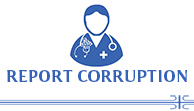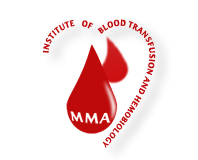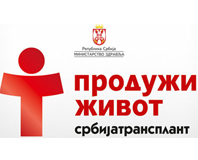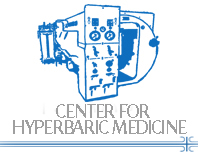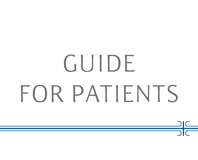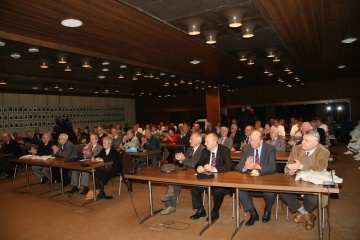
"Dr Vladan Đorđević“ scientific meeting
07. 02. 2010
A scientific meeting celebrating 165 years of the Military Medical Academy tradition and commemorating the165th anniversary of the birth of Dr Vladan Đorđević, the father of the Serbian Surgery, Surgeon General of the Serbian Armed Forces Medical Services, the founder of the Serbian Medical Society and Serbian Red Cross Association, was held at the Military Medical Academy. It was organized by the Military Medical Academy, Academy of Medical Sciences of the Serbian Medical Society and the Novi Sad School of Medicine. On that occasion, a memorial-monograph „dr Vladan Đorđević“, the work of academic Dr Vladimir Jokanović and Major General Prof. Miodrag Jevtić, PhD was presented.
The MMA head Major General Miodrag Jevtić opened the meeting with a warm welcome extended to the vice president of the SANU (Serbian Academy of Sciences and Arts) Prof. Ljubiša Rakić, PhD, the president of Matica Srpska academic Čedomir Popov, the president of the Serbian Medical Society Prof. Radoje Čolović, PhD, the president of
Academy of Medical Sciences of the Serbian Medical Society Prof.Pavle Milenković, PhD and to the other distinguished guests, great figures in Serbian Medicine.
‘’We want to build our future according to the highest standards of the modern medicine, but we do respect our past and want to highlight the most important names in Serbian Medicine’’, said General Jevtić.
The president of the Academy of Medical Sciences of the Serbian Medical Society Prof. Pavle Milenković also addressed the attendees to that meeting.
‘’The Military Medical Academy is a great witness to history. All of us who are building this house of health and science regard the work of our predecessors as the lighthouse that instills inspiration but warns us as well that, in those difficult times, we have to, more than ever before, safeguard our reputation and professional level our predecessors bequeathed to us’’, said the head of the MMA Morale and PR Department, a Research Fellow Elizabeta Ristanović, PhD, at the beginning of the meeting.
Academic Dr Vladimir Jokanović spoke about Dr Đorđević, his life and role in the reform process of the Serbian Civilian Medical Services, about him as the author of Medical Services Acts and a writer of a grandiose opus of works.
‘’We have decided to impartially, without any ideological affiliations and on the basis of unquestionable facts, present to our professional circles data on the man whose work served as the foundation of the modern Serbian Civilian and Military Medicine’’, stressed academic Jokanović.
The Speech on the reform of the Military Medical Services delivered by General Jevtić followed.
We have erected Dr Vladan Đorđević’s portrait bust in the MMA yard to commemorate the 165th anniversary of his birth and celebrate the 165 years of the MMA tradition. The ceremonial unveiling would take place on March 2, 2009.
From the life of Dr Vladan Đorđević.
As a son of a medical officer of the Serbian Armed Forces, Dr Vladan Đorđević seemed to be predestinated for a military career. He employed himself in modernizing the Serbian Military, apostrophizing particularly the significance of the Medical Services in war-time. He was also aware of the fact that medical personnel were a very crucial precondition for functioning of the wartime medical care system. He had channeled a great deal of his efforts into education and training of national medical personnel not refusing the international ones, particularly those coming from Austro-Hungary. In the 10-year period, the number of physicians increased more than ten times in Serbia. Education of military paramedic was systematic. Hospitals were constructed according to modern standards and were located across the whole of Serbia.
Dr Vladan Đorđević devoted a special attention to the public health education and health education programs for soldiers. Serving in the position of the Surgeon General of the Military Medical Services, he was eager to build his awareness on modern medical tactics and military doctrines of the European Armed Forces. He deserves most credit for the advancement of medical officers’ positions within the Serbian Armed Forces, which were very degrading at that time. For centuries, duties of ‘’physicians’’ in Serbia were performed by various herbalists, healers and, in the best cases, by ‘’surgeons-barbirs. Physicians were not regarded as military personnel, not even during their military service. They belonged to ‘medical facilities’’ which were not hospitals as we now understand it. ‘’For a long time, military physicians did not wear uniforms and when they got them, they were made of fabrics of low quality and distinguished from the uniforms of the active-duty military members. The Medical Services were subordinated to the Ministry of Interior and later to the Ministry of Defence. Physicians were always subordinate to district authorities-police officers in the civil and to the Army officers in the military sector. That was the real situation Dr Đorđević found at the time when he started his medical career in the Serbian military.
Let us mention some of significant actions Dr Đorđević did to improve the position of physicians within both civilian and military Medical Services.
1. Medical Services were, from the strategic point of view, adequately manned and equipped;
2. Medical tactics became an integral part of the operative tactics of the Supreme Command;
3. Surgeon General of the Medical Services became a member of the Supreme Command and heads of subordinate medical units were their headquarters staff members;
4. Uniforms of medical officers and NCOs and their insignia were identical to those of Army officers.
5. Upon entering the military service, physicians were given the rank of Captain;
6. Opportunities to advance to higher ranks were available for physicians and other officers as well.
7. The highest rank for a physician was Colonel.
8. The salary of physicians regarded, as civil servants were equal to those of ministers.
After the Serbian-Turkish war, Dr Vladan Đorđević was the first to be promoted to the rank of Colonel. As the Surgeon General of the Medical Services, he had a good personnel strategy. He granted state scholarships to the best graduates of the Lyceum to study abroad and directed their advanced training. He had a clear vision of the Medical Services development, which was transformed into two Legal Acts, which were approved by the Parliament and in force for almost 30 years.
Speaking about the role of Dr Vladan Đorđević in the Serbian Medical Services, we couldn’t evade his historical literary activity. It could be said that, from the very beginning of his medical career in the military, he wrote about Military Medical Services-related issues. Among his publications, the following could be found: ‘’The Principles of the Military Hygiene’’, ‘’Military Medical Statistics’’, Medical Care in Military Hospitals’, ‘Billroth ’s General Surgical Pathology and Therapy’,’ Battlefield Medical Care’,’ ‘Battlefield Medical Care Guide for Military Medical Officers’ ,’Landsberg’s War Surgical Technique’, ‘Medical Review’, etc.
However, the tri-volume set of books titled ‘History of the Serbian Medical Services’ is his capital work. It contains valuable historical information on all major events in the history of the Serbian Armed Forces and its Medical Services. That his work has drawn a considerable attention from the public, and its value has beeen highly recognized by the circles of scientists, writers and politicians.
There was a lot more to be said about Dr Vladan Đorđević.
The figure of such historical dimensions deserves not only scientific meetings held in his honor, busts erected in memory of him in the yards of the two largest clinical hospitals in the Republic of Serbia but an honorable position in the history of the Serbian Medical Services.
Academy of Medical Sciences of the Serbian Medical Society Prof.Pavle Milenković, PhD and to the other distinguished guests, great figures in Serbian Medicine.
‘’We want to build our future according to the highest standards of the modern medicine, but we do respect our past and want to highlight the most important names in Serbian Medicine’’, said General Jevtić.
The president of the Academy of Medical Sciences of the Serbian Medical Society Prof. Pavle Milenković also addressed the attendees to that meeting.
‘’The Military Medical Academy is a great witness to history. All of us who are building this house of health and science regard the work of our predecessors as the lighthouse that instills inspiration but warns us as well that, in those difficult times, we have to, more than ever before, safeguard our reputation and professional level our predecessors bequeathed to us’’, said the head of the MMA Morale and PR Department, a Research Fellow Elizabeta Ristanović, PhD, at the beginning of the meeting.
Academic Dr Vladimir Jokanović spoke about Dr Đorđević, his life and role in the reform process of the Serbian Civilian Medical Services, about him as the author of Medical Services Acts and a writer of a grandiose opus of works.
‘’We have decided to impartially, without any ideological affiliations and on the basis of unquestionable facts, present to our professional circles data on the man whose work served as the foundation of the modern Serbian Civilian and Military Medicine’’, stressed academic Jokanović.
The Speech on the reform of the Military Medical Services delivered by General Jevtić followed.
We have erected Dr Vladan Đorđević’s portrait bust in the MMA yard to commemorate the 165th anniversary of his birth and celebrate the 165 years of the MMA tradition. The ceremonial unveiling would take place on March 2, 2009.
From the life of Dr Vladan Đorđević.
As a son of a medical officer of the Serbian Armed Forces, Dr Vladan Đorđević seemed to be predestinated for a military career. He employed himself in modernizing the Serbian Military, apostrophizing particularly the significance of the Medical Services in war-time. He was also aware of the fact that medical personnel were a very crucial precondition for functioning of the wartime medical care system. He had channeled a great deal of his efforts into education and training of national medical personnel not refusing the international ones, particularly those coming from Austro-Hungary. In the 10-year period, the number of physicians increased more than ten times in Serbia. Education of military paramedic was systematic. Hospitals were constructed according to modern standards and were located across the whole of Serbia.
Dr Vladan Đorđević devoted a special attention to the public health education and health education programs for soldiers. Serving in the position of the Surgeon General of the Military Medical Services, he was eager to build his awareness on modern medical tactics and military doctrines of the European Armed Forces. He deserves most credit for the advancement of medical officers’ positions within the Serbian Armed Forces, which were very degrading at that time. For centuries, duties of ‘’physicians’’ in Serbia were performed by various herbalists, healers and, in the best cases, by ‘’surgeons-barbirs. Physicians were not regarded as military personnel, not even during their military service. They belonged to ‘medical facilities’’ which were not hospitals as we now understand it. ‘’For a long time, military physicians did not wear uniforms and when they got them, they were made of fabrics of low quality and distinguished from the uniforms of the active-duty military members. The Medical Services were subordinated to the Ministry of Interior and later to the Ministry of Defence. Physicians were always subordinate to district authorities-police officers in the civil and to the Army officers in the military sector. That was the real situation Dr Đorđević found at the time when he started his medical career in the Serbian military.
Let us mention some of significant actions Dr Đorđević did to improve the position of physicians within both civilian and military Medical Services.
1. Medical Services were, from the strategic point of view, adequately manned and equipped;
2. Medical tactics became an integral part of the operative tactics of the Supreme Command;
3. Surgeon General of the Medical Services became a member of the Supreme Command and heads of subordinate medical units were their headquarters staff members;
4. Uniforms of medical officers and NCOs and their insignia were identical to those of Army officers.
5. Upon entering the military service, physicians were given the rank of Captain;
6. Opportunities to advance to higher ranks were available for physicians and other officers as well.
7. The highest rank for a physician was Colonel.
8. The salary of physicians regarded, as civil servants were equal to those of ministers.
After the Serbian-Turkish war, Dr Vladan Đorđević was the first to be promoted to the rank of Colonel. As the Surgeon General of the Medical Services, he had a good personnel strategy. He granted state scholarships to the best graduates of the Lyceum to study abroad and directed their advanced training. He had a clear vision of the Medical Services development, which was transformed into two Legal Acts, which were approved by the Parliament and in force for almost 30 years.
Speaking about the role of Dr Vladan Đorđević in the Serbian Medical Services, we couldn’t evade his historical literary activity. It could be said that, from the very beginning of his medical career in the military, he wrote about Military Medical Services-related issues. Among his publications, the following could be found: ‘’The Principles of the Military Hygiene’’, ‘’Military Medical Statistics’’, Medical Care in Military Hospitals’, ‘Billroth ’s General Surgical Pathology and Therapy’,’ Battlefield Medical Care’,’ ‘Battlefield Medical Care Guide for Military Medical Officers’ ,’Landsberg’s War Surgical Technique’, ‘Medical Review’, etc.
However, the tri-volume set of books titled ‘History of the Serbian Medical Services’ is his capital work. It contains valuable historical information on all major events in the history of the Serbian Armed Forces and its Medical Services. That his work has drawn a considerable attention from the public, and its value has beeen highly recognized by the circles of scientists, writers and politicians.
There was a lot more to be said about Dr Vladan Đorđević.
The figure of such historical dimensions deserves not only scientific meetings held in his honor, busts erected in memory of him in the yards of the two largest clinical hospitals in the Republic of Serbia but an honorable position in the history of the Serbian Medical Services.

